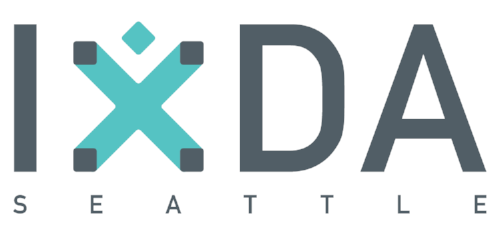State of UX: Convey Super Meet Up Panel
Blink UX sponsored the 7th Convey UX Conference here in Seattle in early March. The conference brings together UX professionals to network, learn, show off their work, and become familiar with new products and technology. The conference co-hosts a Super Meetup with local UX-related organizations to open up the conference to those who are unable to attend the daytime sessions. IxDA Seattle is always pleased to represent.
The State of UX: Looking backing and forward
The event’s meet and greet is capped off with a panel of UX influencers discussing the salient issues of our profession. This year’s panel entitled, The State of UX for Roles, Skills, and Opportunities, proved to be quite lively. The panel featured Jaime Levy, Danyell Jones, Sara Cambridge, and Dan Klyn and was moderated by Shayna Atkins. The panelists delivered their insights with a wallop of personality that kept the audience engaged throughout.
Reflecting the panel title, the discussion covered a broad number of topics, including how the field of user experience has grown over the years. A callout to the site Design 2030 is worth checking out if you’re curious about the future of design. There were also a number of callouts to Indi Young who was sitting in the front row.
Jaime Levy observed that the profession is becoming segmented into hyper-specializations. But she encouraged those coming into the field to approach user experience holistically; otherwise, the end user experience will feel segmented rather than organic. Sara Cambridge, was more optimistic. She sees the amount of market opportunity enabling people to come to the profession by different pathways and to take UX in new and creative directions. Sara’s excited to see design have a broader impact beyond making digital products.
Dan Klyn asserted that the sheer amount of opportunity has its downside though, noting the inequality within the field. He was following up on Jaime’s lament that some young people entering into field are more motivated by profit more than passion now that it’s seen as a path to a lucrative profession. He sees this lure of good money also causing some people to work for very little to “get their foot in the door.” He predicts the field will see labor organizing in its future to address the discrepancy between full time and contract employees.
Advice to students
Shayna Atkins asked the panelists what they emphasize in their teaching. Dan Klyn shared that he finds the notion that "you are not your user" to be problematic because it creates a NIMBE-like (Not in my back yard) effect in which designers are separate from their users. He encourages his students to consider if they would use what they are designing and if it is good enough for them.
Dan's provocation elicited pushback from the other panelists that unearthed tensions around realizing diversity and inclusion in the field. Sara Cambridge diplomatically reminded the audience that Dan's point should be taken in context. He can take such a position as an experienced UX designer; however, when you are starting off in the field, users should centrally figure into your design practice. This, she explained, is how you learn empathy and understand how to design products that serve people in their contexts. Danyell Jones added the caveat that we need to think beyond ourselves to ensure our products don't exclude. It's hard to design well for others if you don't assess the cocoon that you're in or look beyond your own socio-economic position.
The middle path between the panelists' disagreeing views on UX professionals' responsibility to users is something we all agree on: we should aim to design products that meet users where they are at that also maintain the high standards we expect in the products we use.
Continual Learning
The most engaging portion of the panel was on continuous learning. Danyell Jones explained she continuously learns by talking to people who do "cool shit" outsider her field. By learning from them, she's inspired to think about design from different angles, which expands how she thinks as a designer. Dan Klyn referenced Daniel Szuc's suggestion to maintain a learning portfolio that shows what you don't know and what you want to learn. Such a portfolio provides a learning plan as well as provides others a unique view into how you approach UX design. Sara Cambridge's suggestion for continuous learning brought both Danyell's and Dan's suggestions together, reminding the audience that the modern world of UX is networking, by which she means creating genuine connections with others both in and outside the field of UX. The Convey UX conference definitely provides the opportunity to create such genuine connections.


